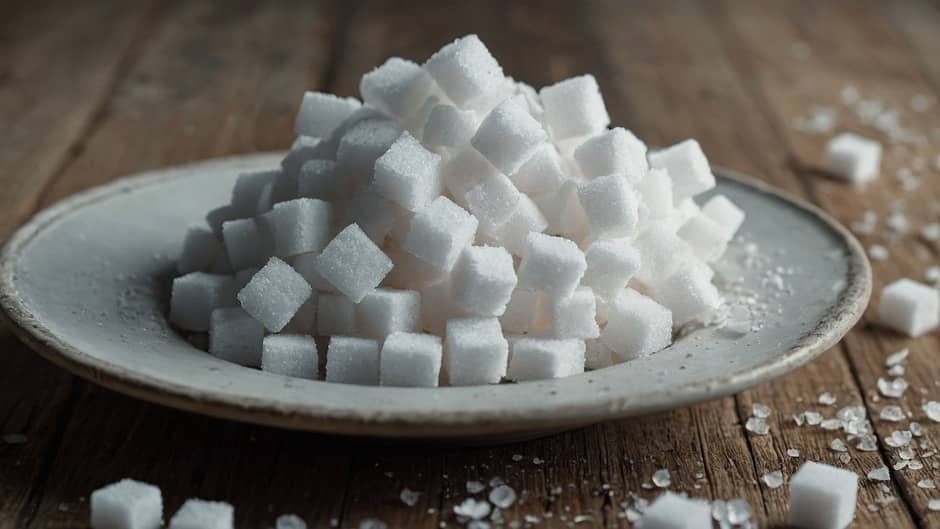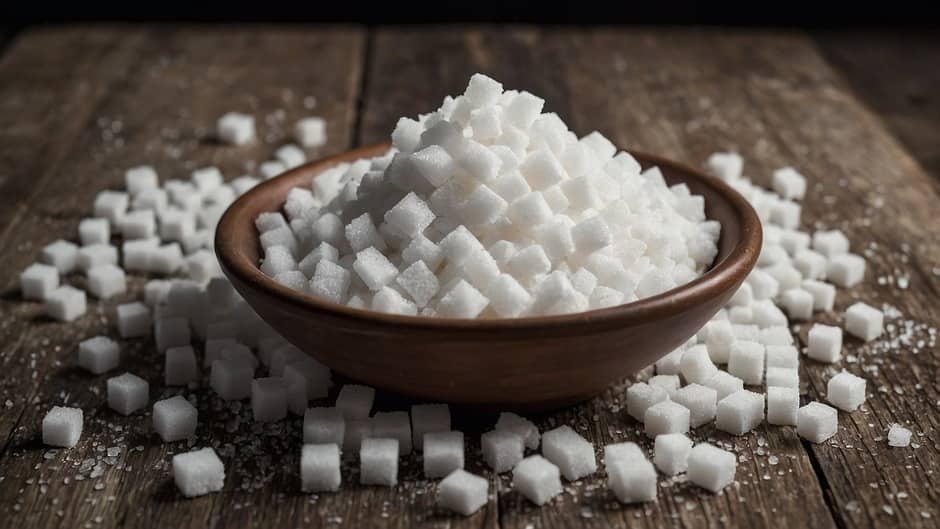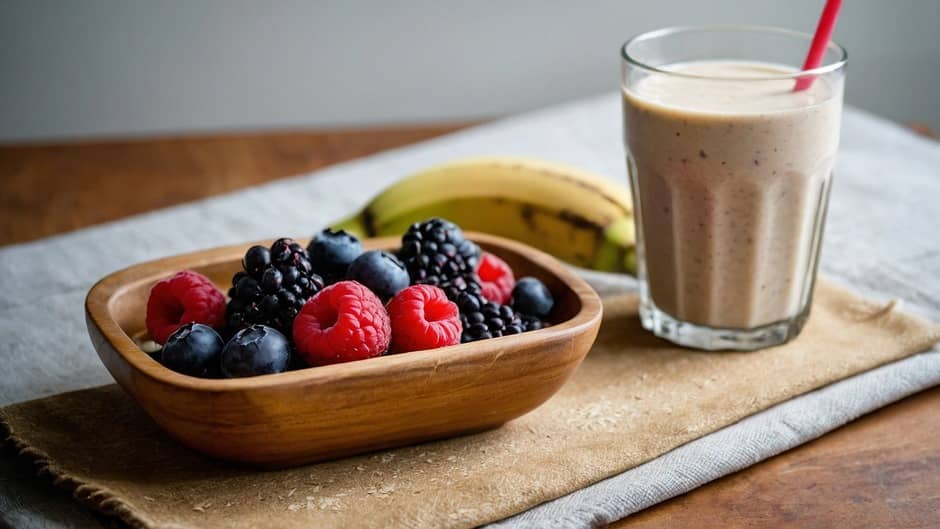Table of Contents
- Relationship Between Carbohydrates and Sugar
- How Is Sugar and Carbohydrates Related?
- Why Should We Avoid Sugar?
- Why Should We Avoid Refined Carbohydrates?
Relationship Between Carbohydrates and Sugar
Alright, let’s discuss carbohydrates and sugar.
Think of sugar as an individual member of the larger family that is carbohydrates. The overall class of food substances known as carbohydrates includes starches, fibers, and sugars. We will see high sugar content foods to avoid.
Now, when we talk about sugar, we’re talking about a certain type of carbohydrate.
This is where things start to get interesting, though: not all carbohydrates are made equal, and how they affect our bodies can differ significantly. When we consume carbohydrates, our bodies break them down into simple sugars like glucose, which serves as our cells’ primary source of energy.
This is true whether the carbohydrates are from bread, rice, or a piece of cake.
However, some carbohydrates split quickly, resulting in a quick rise in blood sugar, while other carbohydrates split more gradually, providing a more steady release of energy.
Sugars are a form of carbohydrate that break down fast, leading to rapid rises in blood sugar, particularly the added sugars found in many processed foods.
This may give you a sudden burst of energy, but it’s usually followed by an unplanned event that leaves you exhausted and craving more sweets.
Therefore, the relationship between carbohydrates and sugar is that sugar is a type of starch, and while all sugars are carbohydrates, not all sugars are carbs.
Though all carbohydrates are sugars, not all carbohydrates are bad for you.
Certain foods, including whole grains and veggies, are rich in minerals and provide a slow, steady supply of energy. It has to do with striking the correct balance and making choices that maintain your physical stability and energy levels.
Also Read – Is Lactose Free Yogurt Better For You? – Can Lactose Intolerance Make You Constipated? (2024)
How Is Sugar and Carbohydrates Related?
For the time being, let’s explore the relationship between sugar and starches in more detail.
Consider it this way: sugar is something that is under the major umbrella of starches. Carbohydrates include anything from bread and pasta to fruits and vegetables. These foods consist of a wide variety of chemicals, one of which being sugar.
As soon as you start chewing on anything that contains carbohydrates, your body starts to process them.
Long chains of sugar atoms make up complex carbohydrates, which are similar to those found in whole grains and vegetables.
Your body needs time to disassemble these lengthy chains into individual sugar molecules.
These sugar molecules get into your circulation and give you energy for an extended amount of time. But in their most basic form, simple carbohydrates are already there, such the sugar in soda, candies, and other sweet delights.
This allows them to enter your bloodstream rapidly and provide you a short energy boost without requiring much breakdown. However, pause and reflect for a moment.
This rapid boost in energy can also cause a rapid drop in blood sugar, which may leave you feeling sleepy or craving more sugar.
Therefore, to put it simply, all sugars are carbohydrates, but carbohydrates also include something other than sugars.
One form of carbohydrate is sugar, and the rate at which it affects your body differs based on whether it is simple sugar or a component of a more complex carbohydrate.
If you understand this connection, you can choose foods more wisely, maintaining both your health and your energy levels.

Why Should We Avoid Sugar?
Imagine this: you’re enjoying your favorite candy bar or sugary drink.
Isn’t it delicious?
But what’s happening within our bodies after we indulge in that pleasure is something we don’t always consider.
Our bodies get a quick energy boost from sugar, especially when it’s added to foods like confections, soft beverages, and hot goods. It’s brief, like a fireworks explosion, but it’s bright and thrilling.
After the initial high, we suffer a dip in energy that leaves us feeling drained, agitated, and often in need of more sugar to get back to that feeling.
With time, our bodies may become severely strained by this never-ending cycle. The issue with sugar is that it causes more than simply hangovers. Overindulging in sugar might lead to more severe health problems.
For example, it increases your risk of developing conditions including obesity, heart disease, and type 2 diabetes.
Sugar is sneaky; it may be found in a lot of foods that we usually won’t consider sweet, such as bread, sauces, and even dressings for mixed greens plates.
If we eat too much sugar, our bodies find it difficult to metabolize all of that extra sugar.
It accumulates as fat, especially around our abdomen, which has implications for our overall health in addition to how we look.
With all this additional sugar, over time, our systems may become less able to manage the hormone insulin, which controls blood sugar levels, leading to the development of diabetes.
Thus, by avoiding sugar, we’re protecting ourselves against long-term health issues in addition to avoiding a momentary sugar rush.
Also Read – Are Raw Vegetables Better For You? – Benefits Of Eating Raw Vegetables For Weight Loss (2024)
Why Should We Avoid Refined Carbohydrates?
Next, let’s talk about refined carbohydrates, which are kind of like the nearby cousin of sugar.
These can be found in a number of morning cereal kinds as well as white bread, white rice, and cakes.
Although they start out as whole grains, their inherent goodness—including fiber, vitamins, and minerals—is destroyed during processing. All that’s left is something that tastes nice, looks well, and is healthy but doesn’t really do much for our health.
Our bodies swiftly turn refined carbohydrates into sugar, practically as if we were consuming pure sugar.
This results in an abrupt drop in our blood sugar levels after a spike, akin to the sugar rollercoaster we previously talked about.
Whether we’ve recently had a substantial dinner or not, this cycle might cause us to feel hungry again shortly after we eat.
Overindulging in refined carbohydrates can lead to weight gain over time, difficulty controlling blood sugar, increased risk of type 2 diabetes, heart disease, and even some types of cancer.
But there’s more.
Refined carbohydrates do not provide you with the same sense of fullness and satisfaction that whole grains do.
Whole grains help us feel fuller for longer periods of time since they haven’t lost any of their fiber, which makes maintaining a stable weight easier.
They also help to maintain the proper functioning of our stomach-related architecture, which is essential for overall wellbeing.
Choosing whole grains instead of refined ones allows us to avoid the harmful effects of refined carbohydrates while still providing our systems with the necessary supplements.
Read us on Medium.




